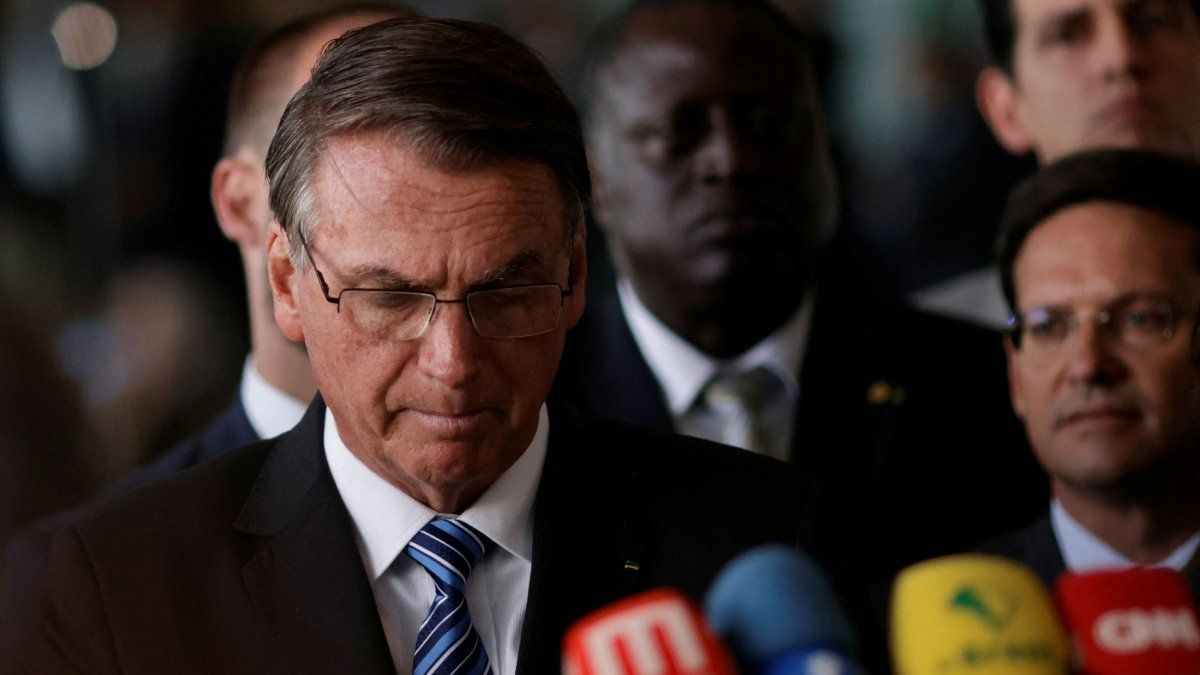The Central Bank (BCRA) It comes from increasing its reference rate to 40% per year and ordered a general redesign of the monetary policy instruments to reinforce the conditions of macroeconomic stability.
Meanwhile, the market also expects signs of a delayed “multi-year” economic plan in the face of exchange pressure, lack of reserves in the BCRA, annualized inflation above 50%, issuance in favor of the Treasury and a complex fiscal deficit.
It is simply “trying to make an agreement with the IMF without the commitment to make a change (from the Government,” he said. Diego Ferro, an economist at M2M Capital. “If Argentina had a serious economic plan, there would have already been an agreement with the Fund. Since there is no economic plan, even less serious economic measures, the Fund will try to ensure that there is a minimum of adjustment, that the Government at a certain point is implementing but cannot say, “he added.
“The intention to achieve a fiscal balance only in 2027 is a bad sign for the dollar bonds and raises doubts regarding being able to reach an agreement with the IMF before March,” he said Roberto Geretto, an economist at the Fundcorp fund. “The rate hike by the BCRA does not seem to change the outlook. Not only because a 40% annual rate is still below expected inflation, but because it is of little use if a new macro scheme agreed with the IMF, “he added.
“The bonds are trading at the ‘default’ level, despite the great restructuring of 2020. The agreement with the IMF is needed, although Argentina says it does not want to make an adjustment as required,” said the economist Gabriel Caamano.
“The Government is running out of its own liquid reserves despite net purchases of some 5,000 million dollars in 2021 (by the BCRA), and events could be precipitated by internal inconsistencies and an international context that was worsened by the resurgence of the pandemic and the expected increases in rates with less liquidity given the rise in global inflation. Thus, the local financial situation is extremely fragile, “he said. Roberto Drimer, socio of VatNet Research.
“The IMF continues to be the great pending task for this new year that has just begun. We started 2022 without an agreement and, again, without details of the macroeconomic plan that was promised for the first time after restructuring private debt in September 2020,” said Portfolio Personal Investments (PPI).
“The point at which Argentina does not agree with the IMF is on the path of reducing the fiscal deficit. The Government plans to reach fiscal balance in the year, only in 2027,” said the economist Santiago Bulat.
“It is necessary to reach a consensus (…) the agreement with the Fund would be a great opportunity,” he said. Hector Torres, former Argentine director at the IMF.
The rate hike is “a very small step in a long way towards monetary and financial normalization” of the BCRA, he said. Alberto Ramos, Goldman Sachs analyst. “To a large extent, the monetary authority lost the ability to control internal liquidity due to the need to cover large amounts of fiscal financing -monetization of public spending-“, he added.
The BCRA’s measures “go in the direction required by the IMF although they seem very moderate considering that inflation seems to have a medium-term floor above 3% per month,” said the consulting firm. Delphos Investment.
The BCRA “advanced in the creation of a new 180-day ‘Leliq’ (…) In terms of the annual effective rate (TEA), the current 28-day ‘Leliq’ now yields 48.3% and the of 180 days 48.9%, reason why the award for extending term does not seem convincing, “reported the Cohen brokerage.
“The Treasury cannot continue with this level of assistance from the central bank, December was a monetary disorder. They should lower spending and in the meantime raise the rate to finance themselves in the debt market and not with the little machine ( printing banknotes) “, said the analyst Christian Buteler.
“December’s monetary financing reaches 1.1% of GDP, and it is a sign that the deficit for that month may be the largest in 2021,” predicted settlement and clearing agent Neix.
“The current exchange rate gap (101.4%) drives investors away” from Argentina, said the analyst Damián Di Pace.
According to the Workers’ Living Level Index (INVT) prepared by the Fundación Libertad y Progreso based on official sources, in October the purchasing power of workers increased by 1.1% compared to the previous month and by 5.4% compared to October 2020. With this, the INVT accumulates its third consecutive month of rise.
Source From: Ambito
David William is a talented author who has made a name for himself in the world of writing. He is a professional author who writes on a wide range of topics, from general interest to opinion news. David is currently working as a writer at 24 hours worlds where he brings his unique perspective and in-depth research to his articles, making them both informative and engaging.




